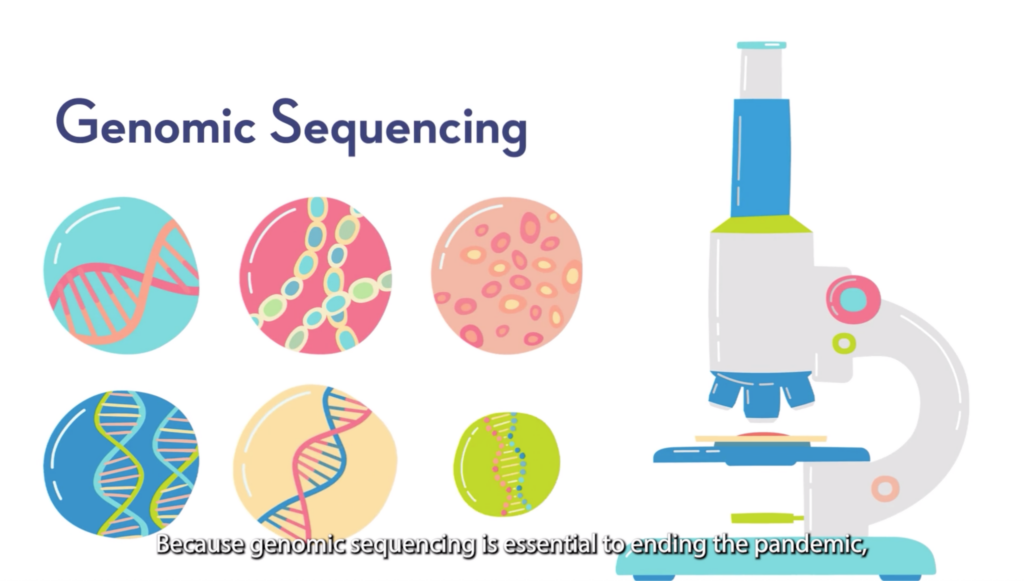The Genomic Sequencing Advocates Network (GSAN) recently issued an open letter to the Intergovernmental Negotiating Body (INB) of the World Health Assembly, in which they called for the inclusion of 10 specific points to improve genomic surveillance and international cooperation in the forthcoming accord governing the world’s pandemic prevention, preparedness and response.
Read the open letter’s full text – and watch this short animated video on genomic sequencing!
Genomic sequencing (GS) uses viral surveillance to find new variants, know the current picture in countries, regions, and globally, and model future scenarios. GS has also been pivotal in developing COVID-19 vaccines and diagnostic tests in record time. Unfortunately, access to GS technologies is uneven within and between countries worldwide.
“The COVID-19 pandemic highlighted significant health inequities around the world,” said Dr. Jorge Saavedra, Executive Director of the AHF Global Public Health Institute at the University of Miami. “While we identify the unequal access to vaccines, diagnostic tests, personal protective equipment, and medicines—we must also reflect on the inadequate response capacity of health systems, including the lack of access to genomic sequencing technologies for SARS-CoV-2, the virus that causes COVID-19.”
This inequity is why AIDS Healthcare Foundation (AHF), through its Global Public Health Institute, created a research fund in 2021 to support and expand GS capacities in 14 renowned institutions in 15 countries worldwide. This fund led to GSAN’s creation, which is comprised of all the principal investigators of the AHF-supported projects.
“We need scientists, decision-makers, politicians, academia, and other stakeholders to unite their voices to put genomic sequencing on the global public health agenda,” added Dr. Saavedra. “We must be predictive – not reactive – to new pathogens with epidemic potential. We urge the Intergovernmental Negotiating Body to ensure genomic sequencing is viewed as an essential tool to achieve this and avoid new catastrophes such as our current crisis in COVID-19.”
Genomic sequencing has proven its immense value through its contributions to stopping the current pandemic. Unless government leaders work to bolster the existing pandemic prevention, preparedness, and response infrastructures through international cooperative efforts like genomic sequencing, the world will continue suffering from mistakes made in this and future infectious disease outbreaks.


